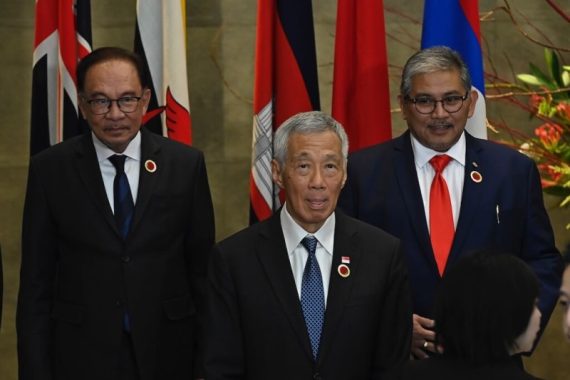T
he United States has expressed confidence in maintaining strong ties with Vietnam, despite Hanoi’s recent announcement of strengthened defense and security cooperation with China. This development comes as the two great powers, the U.S. and China, continue to compete for influence in the region.
Vietnam’s leaders enhanced their relationship with Beijing during Chinese President Xi Jinping’s visit to Hanoi last week. This move came three months after Vietnam boosted ties with Washington during U.S. President Joe Biden’s visit, a strategy often referred to as Vietnam’s “Bamboo diplomacy.”
Cameron Thomas-Shah, spokesperson at the U.S. embassy in Hanoi, emphasized that the U.S.’s relationship with Vietnam is independent of any third-country dynamics. “Our close cooperation with our Vietnamese partners across various sectors, including health, education, technology, and trade, will continue for the foreseeable future,” he stated in response to Reuters.
Xi’s visit
The joint declaration issued after Xi’s visit included commitments to stronger security cooperation between Vietnam and China, particularly in defense industries and logistics. Despite this, experts believe these “aspirational goals” with China are unlikely to impact defense cooperation with the U.S.
Vietnam and China have also agreed to enhance intelligence exchanges to counter “hostile forces,” a term often used by China to describe external influences in internal affairs. Zachary Abuza, a professor on Southeast Asian politics at the National War College in Washington, D.C., noted, “The emphasis on ‘hostile forces’ is not a surprise… But don’t overstate the bilateral cooperation between them on this. They won’t be sharing intel.”
Raymond Powell, a former Air Attache to the U.S. embassy in Vietnam and current leader of Stanford University’s Project Myoushu, commented on the nuanced nature of Vietnam’s foreign policy. “There is always a distinction between Vietnam’s diplomatic pronunciations and its actual security concerns,” he said, adding that Hanoi will continue to navigate between Beijing’s political expectations and the threat China poses, especially in the South China Sea where both nations have conflicting claims.
A balancing act
The U.S.’s statement and expert analyses suggest that Vietnam’s recent moves towards China are part of a broader strategy to balance its relations with major powers, without significantly altering its growing partnership with the United States.
In a discussion with Tuoi Tre, a Vietnamese daily newspaper, Nguyen Quoc Dung, the Vietnamese Ambassador to the United States, expressed Vietnam’s intention to foster positive relations with all major global powers, emphasizing a non-partisan approach. Ambassador Dung highlighted that the advancement of Vietnam’s relationship with the United States aligns with Vietnam’s core strategic interests of ensuring peace, stability, and development.
Meanwhile, Marc Knapper, the U.S. Ambassador to Vietnam, in a conversation with VOA Vietnamese, dismissed the idea that Beijing’s influence was a major factor in the U.S.’s decision to enhance its relationship with Vietnam. He underscored the inherent value of the U.S.-Vietnam relationship. During Prime Minister Pham Minh Chinh’s visit to the U.S. for the United Nations General Assembly, Ambassador Knapper elaborated that both countries share common objectives, including Vietnam achieving net-zero emissions, indicating a mutual commitment to environmental and strategic goals.
These statements reflect the ongoing diplomatic efforts and the broader context of international relations in the region, particularly in the wake of evolving geopolitical dynamics.
Recommended





